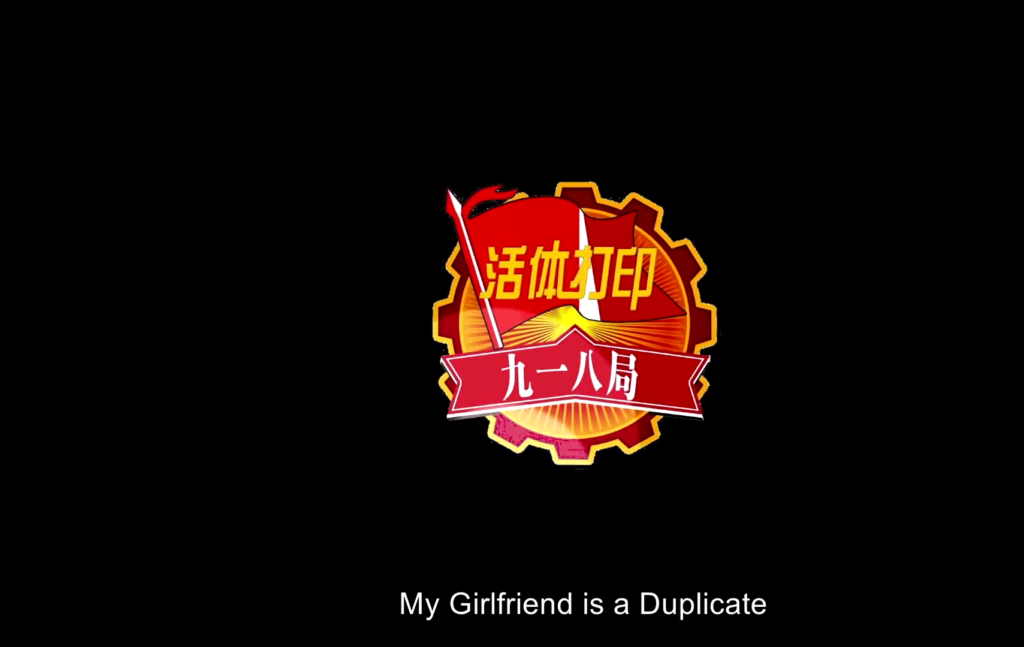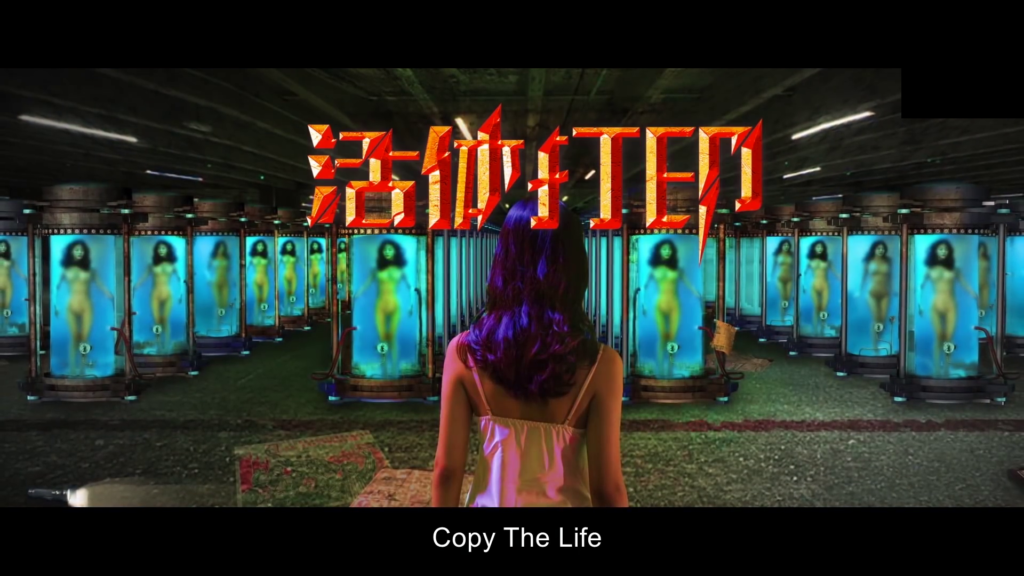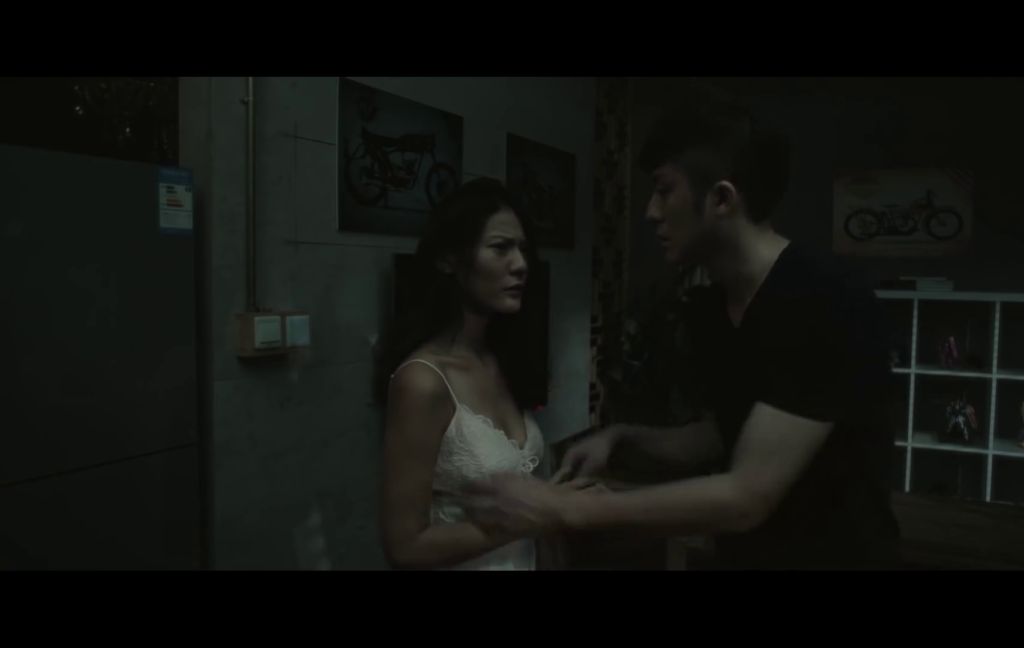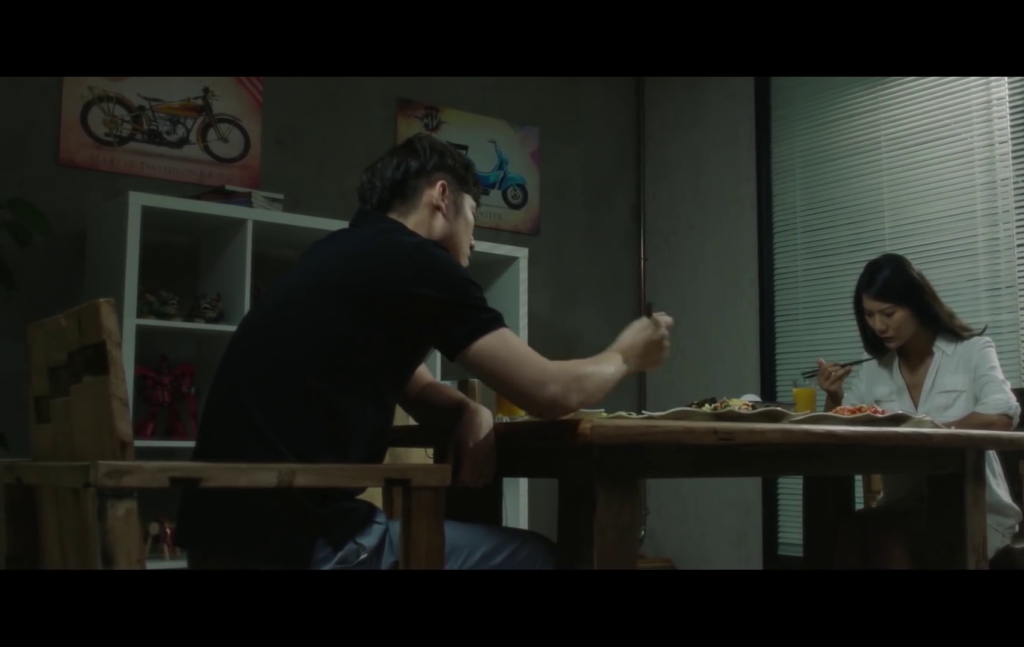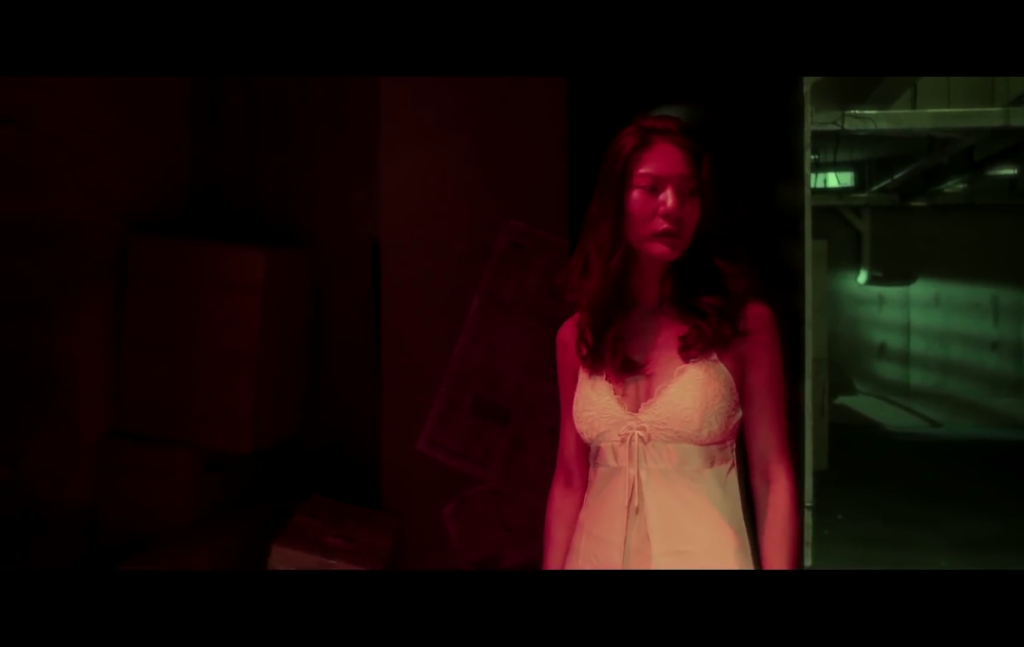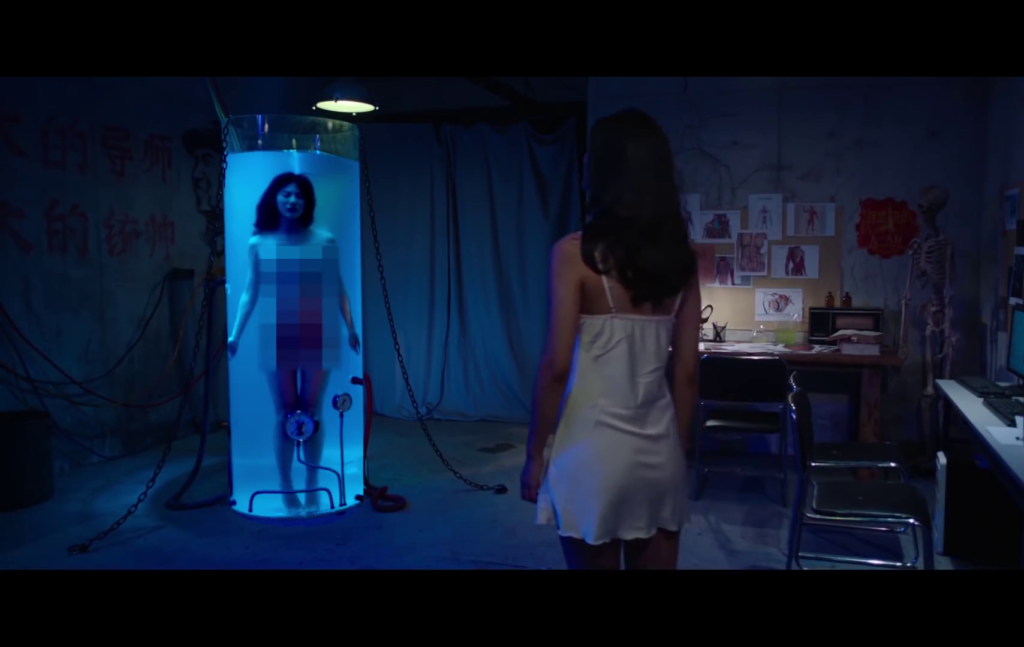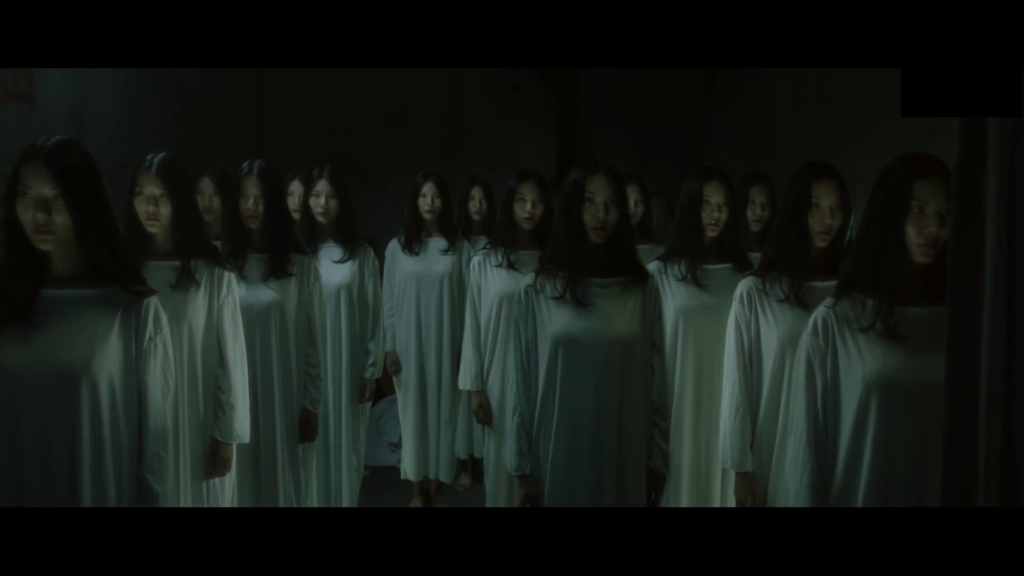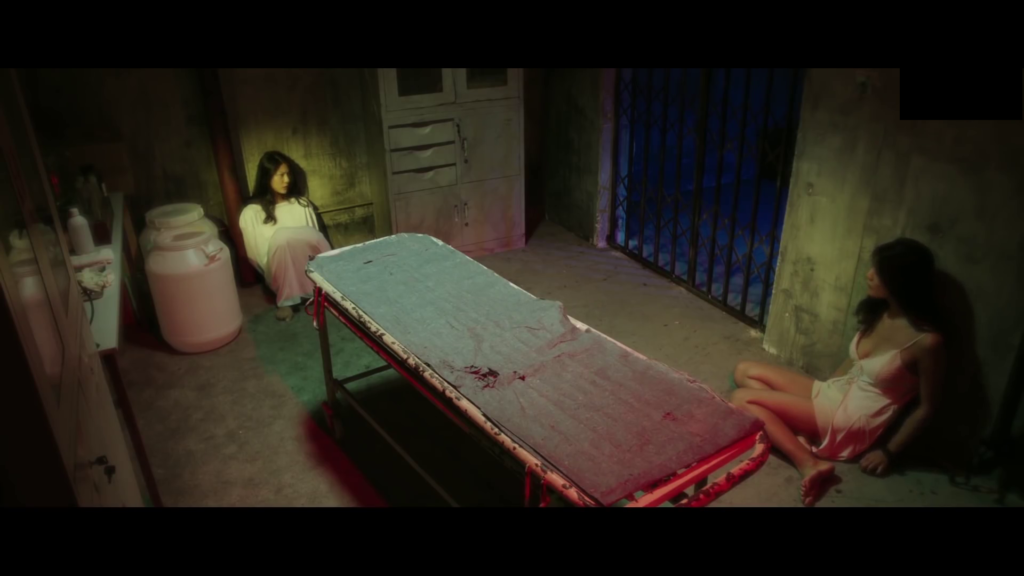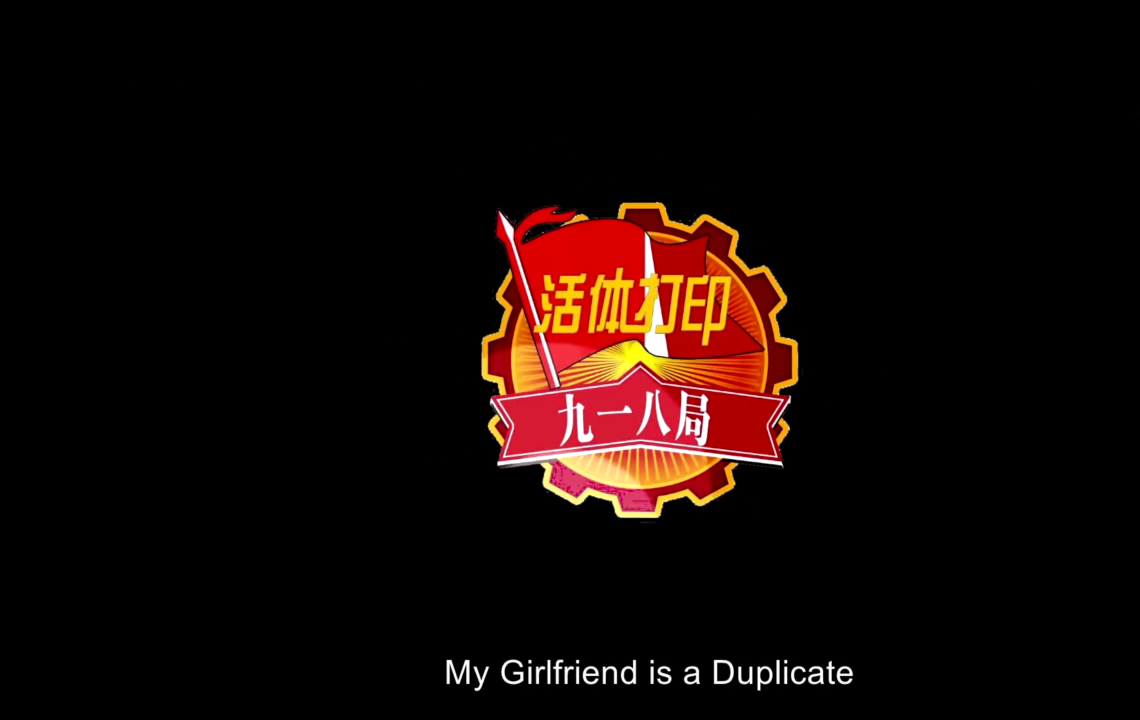
#457 – My Girlfriend is a Duplicate (2021)
My Girlfriend is a Duplicate (2021)
Film review #457
Directors: Xing Guangjun, Tu Biao
SYNOPSIS: Chen Fei often wakes up after having a dream where her boyfriend Ma Jia tries to choke her. Ma dismisses it, but when Chen gets suspicious about Ma’s work, she discovers a secret laboratory under their home, within which a number of clones of her are being stored. It turns out that she herself is one of these clones of Ma’s girlfriend that he accidentally killed, and that the cloning technology is being sought by a nefarious organisation…
THOUGHTS/ANALYSIS: My Girlfriend is a Duplicate is a 2021 Chinese romance sci-fi film. It is based on the novel “Dragon Fleet” by Tu Biao, who also co-directs this film. The film centres around the young couple Ma Jia and his girlfriend Chen Fei. She is beset by bad dreams about being choked by her boyfriend, which he dismisses as just stress. Ma himself is heavily distracted by his research, which brings in no money for them, and is an added source of stress. When Chen gets curious about the basement of their house, which Ma maintains is just full of junk. When Chen eventually makes her way down there to investigate, she makes a startling discovery: a large number of clones of herself in suspended animation. She eventually learns from one of the other clones that they are all – herself included – clones of the original Chen Fei, who was Ma’s girlfriend before he accidentally killed her. However, he was able to “print” clones of her thanks to the research he has been doing that builds upon his Father’s own research; part of a secret government project to enhance the health of its citizens. The story has a fair amount of different elements in it from romance and science-fiction, so the story has some variety in it. The science-fiction aspect is the most interesting aspect of it, as we learn about the couple’s past. The romance aspect isn’t developed very much, and plays out with beginning as a typical young couple, and never really exploring how this discovery would affect their relationship. When Chen makes the discovery, the film shifts almost entirely to the science-fiction genre, with a lot of the story told through flashbacks. At just over an hour long, we don’t see anything more than these series of flashbacks and a brief follow-up focusing on the consequences of it.
The cast of the film is minimal, with the couple being the main point of focus for relationship drama, and a villain who emerges near the end. There’s some dialogue involving another clone of Chen, referred to as No. 126, and the ‘current’ clone of Chen, but it seems to set her up as her own unique character and then never go anywhere with it. I’m not sure if you’re supposed to empathise with Ma, given that he did kill his girlfriend, and has to continue re-cloning her as the clones have a fairly short lifespan. The ethics of the whole process seems very much unexplored, which seems odd for a science-fiction film, but less odd when you consider which country it is produced in.
In terms of production, the film isn’t up to the standard of big budget Hollywood films: the editing is awkward, and things often move around between shots, which disrupts the continuity. There’s also the rather unconvincing special effects and the wooden acting that doesn’t convey the powerful feelings that this couple are supposedly supposed to have for each other. The most interesting aspect of this film, as with most films produced in country’s with strict censorship programs, is how the film has to do and show certain things to be approved for release. At the start, we are told about a secret government bureau made to improve the health and wellbeing of the Chinese people, but it is done in such a way that it doesn’t make the government look bad or keeping dark secrets from the public. As such, any more details about how secret the bureau is and what it actually did is not addressed. The villain is outlined as being a traitor who wants to steal the Bureau’s research in order to sell it to China’s age-old enemy Japan. There’s also a scene where the villain goes to pray at an altar with what I presume is meant to be the Chinese Premier, to which Ma calls him out to “stop pretending” that he is paying his respects. This again is obviously reinforce the message that the villain is not part of the government and is this traitor that deserves no sympathy. As mentioned earlier, sci-fi films such as this would usually address the ethics of the concept of cloning, and whether it is right to do it. This film completely avoids saying whether it is right or wrong: the only wrong it highlights is selling the secrets to a foreign enemy. It is perhaps important to highlight that the Chinese government is often found at the forefront of cloning research, and any kind of critique could easily be seen as a critique of government research. The trouble is that such explorations of ethics and possibilities of science and technology really is at the core of the science-fiction genre, and in completely avoiding that part of it, this film feels quite pointless and empty.


